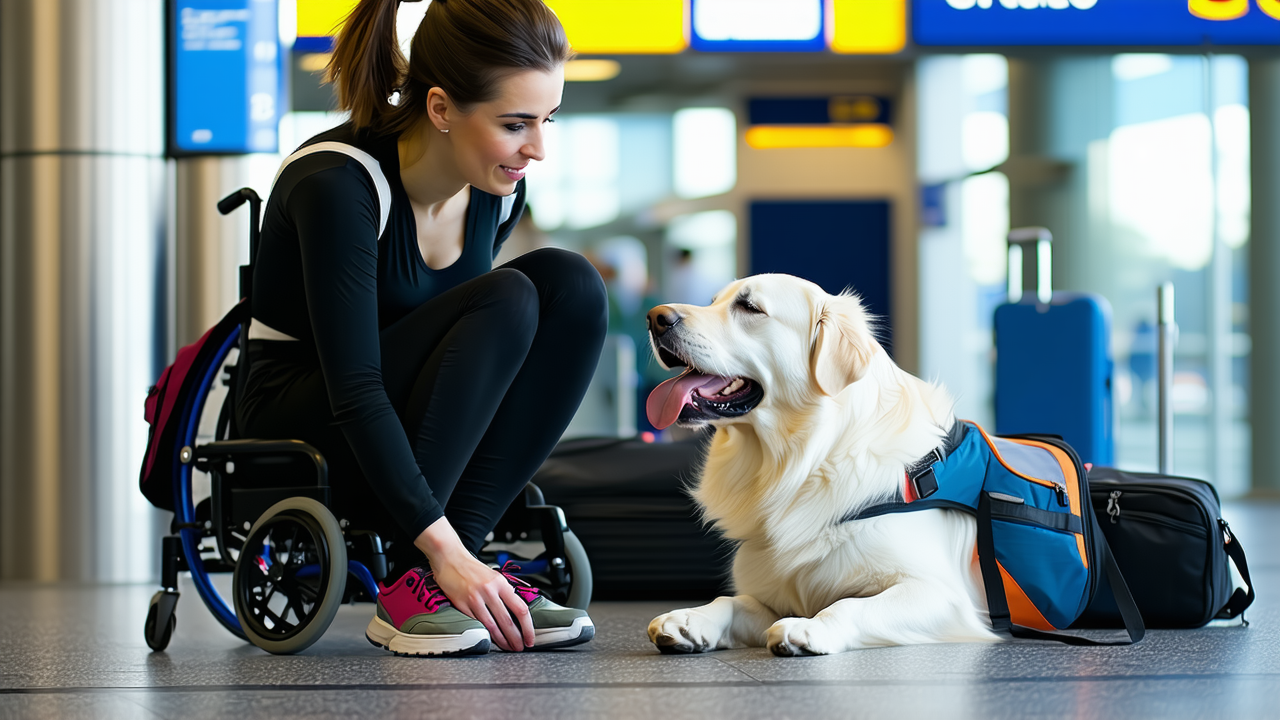Air New Zealand Changes Assistance Dog Policy After Discrimination Complaint
Australian Woman's Fight for Air Travel Access with Assistance Dog Leads to Policy Change at Air New Zealand
After years of struggle, Lisa Robinson, a woman living with post-traumatic stress disorder (PTSD), has finally been able to travel on Air New Zealand with her assistance dog, Lilly, following a policy change that has sparked a broader conversation about accessibility in air travel.
Initial Denials and Legal Action
In 2022 and again in 2024, Robinson attempted to book flights between Brisbane, Australia, and Christchurch, New Zealand. Both times, she was denied permission to fly with Lilly, who is trained to alert her to rising anxiety levels. Air New Zealand informed her that Lilly could only travel in the cargo hold, as the airline did not recognize the type of assistance dog Lilly was.
Robinson, a former paramedic, emphasized that Lilly is not a pet but a working animal that enables her to live independently. After the first denial, she filed a discrimination complaint with the Queensland Human Rights Commission, supported by the Justice and Equity Centre. The organization argued that assistance dogs are working animals and that businesses must provide accessible services to people with disabilities.
Settlement and Policy Change
The complaint was settled in August 2025 on confidential terms. In response, Air New Zealand initiated a two-year review of its policies, incorporating feedback from customers, advocacy groups, government agencies, and other airlines. As a result, the airline updated its policy to allow assistance dogs to travel in the cabin on flights between Australia and New Zealand.
The new policy now allows assistance dogs accredited by Australian state or territory bodies to travel in the cabin, without requiring accreditation from Assistance Dogs International or the International Guide Dogs Federation. Customers can also submit additional training details to support their applications.
Industry and Government Response
Alex Marren, Air New Zealand’s Chief Operating Officer, stated that the airline is committed to making air travel accessible and will continue to listen and improve. However, experts have pointed out that inconsistent rules across airlines and the absence of a national standard in Australia continue to lead to widespread discrimination against people with disabilities.
People with disability organizations stress that air travel is essential for independence and that the lack of uniformity in policies across airlines is a significant barrier. In response, the Australian government has announced it is developing new Aviation Disability Standards, co-designed with disability advocates and people with lived experience, to address the rights of people with disabilities and support the development of National Principles for Assistance Animals.
Robinson's Perspective
Under the new Air New Zealand policy, Lilly can now travel in the cabin. Robinson expressed pride that the airline has changed its stance, noting that Lilly is a 'Kiwi' and that it would have been 'a really sad thing' to be denied access. While she acknowledges the progress made, she also points out that only a small number of airlines remain inconsistent in their policies, indicating a need for broader inclusivity in the aviation sector.
Robinson's experience has not only changed her own journey but has also contributed to a growing movement for more inclusive air travel policies. As the Australian government works on new standards, it is hoped that more airlines will follow Air New Zealand's lead and ensure that people with disabilities can travel with the support they need.
